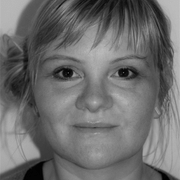Article
Diabetic Retinopathy Risk Reduced by RYGB Surgery
Author(s):
The patients who received RYGB surgery had a 60% better chance of unchanged or improved diabetic retinopathy than those without the operation.

New research indicated that Roux-en-Y gastric bypass (RYGB) surgery reduces the risk of retinopathy in patients with type 2 diabetes that are obese, regardless of diabetes remission occurring post-surgery.
The findings, presented at the European Association for the Study of Diabetes (EASD) 2017 Annual Meeting in Lisbon, Portugal, showed that in a 6-year follow-up of 144 obese diabetics - 96 receiving operation, 48 without operation (control group) - the patients who received RYGB surgery had a 60% better chance of unchanged or improved diabetic retinopathy than those without the operation.
The study, led by Lene Ring Madsen (pictured), MD, of the department of endocrinology and internal medicine at Aarhus University, in Denmark, 96 that received the operation had a baseline body-mass index (BMI) of 47.8 kg/m^2, and were matched up with their non-operated counterparts for current BMI as well as age and gender. Remission of the patients’ diabetes was defined as hemoglobin A1C (HbA1C) below 6.5% without glucose-lowering medication and occurred in 48 of the 96 patients following surgery.
After adjusting for the duration of diabetes, gender, and status as a smoker, the risk for diabetic retinopathy was 0.36 for the remission arm compared to the control arm, and 0.75 for the nonremission arm compared to the control arm. This difference was not considered significant statistically.
The initial cross-section revealed that 2% of the operation cohort that experienced remission had severe retinopathy, while 19% of those without remission post-surgery and 10% of the non-operational arm had severe retinopathy (P <0.001). No retinopathy was experienced by 87.5% of the operated remission group, 52% of the non-remission operated group, and 77% of the non-operated group.
The 6-year follow-up showed that in a 65-patient subgroup (23 with remission, 26 without, and 16 controls), patients that received RYGB surgery displayed reduced grading from their first to second retinal photo imaging compared to controls (+0.69) regardless of the presence of diabetic remission (-0.19 [P = 0.011] with remission and -0.04 [P = 0.001]).
Several other trials have shown that RYGB surgery can induce diabetic remission in some patients, in turn resulting in improved glycemic control over the long-term and thus reduced progression of diabetic retinopathy.





